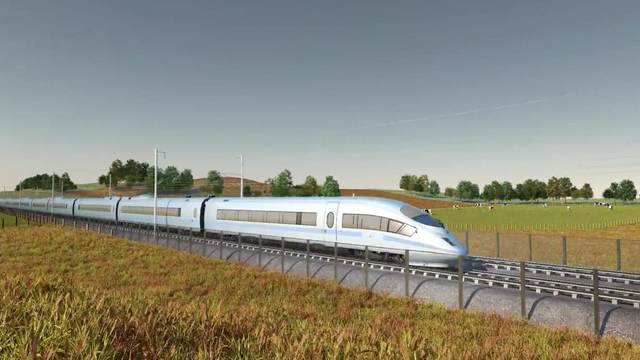HS2 Is A Waste Of Money, Say Most People In Birmingham
3 October 2016, 08:50 | Updated: 4 October 2016, 11:46

An exclusive Capital poll suggests more than half of people living in Birmingham think HS2 is a bad use of public money.
The city will be the first hub for the ultra-high speed rail line from London. Costing £55billion, HS2 will be the fastest train line in Europe, but also the most expensive.
The journey from London to Birmingham will be cut by 32 minutes.
But YouGov research for Capital suggests more than a third of those think the £55bn cost would be better spent on the NHS.
Just a third of people questioned thought the new rail link is a good use of public money.
32% of those thought HS2 was a good investment in the city.
Chancellor Philip Hammond told Capital the project is about investing in the future of the UK. He told us: "It's one of the big projects which will change Britain's productivity performance in the future.
"Britain has a tiny length of high-speed railway. All our major competitors in Europe have hundreds or thousands of kilometres of high-speed railway. We have to be able to compete on a level playing field with these people who will be fighting for global markets against in the future.
"We have to be able to get our goods, our services, our people moved around quickly and efficiently."
Former Secretary of State for Work and Pensions Iain Duncan Smith said he has always been skeptical by the idea of HS2, believing that capacity is the major issue for railways in the UK, not speed.
He said: "I'm all in favour of massive investment in the railways. The capacity is the issue for me, not the speed. I would put massive investment in linking up northern cities with each other, from Newcastle all the way down to Liverpool, through Leeds, across to Cumbria, that's where the money should go.
"My skepticism about building a super-fast railway all the way to Birmingham, if we're not careful, it doesn't make Manchester any better, you make a commuter belt from Birmingham to London and that's not what we want.
"You want to develop those cities in their own right. We might end up spending £100 billion. What's the return for that?"






